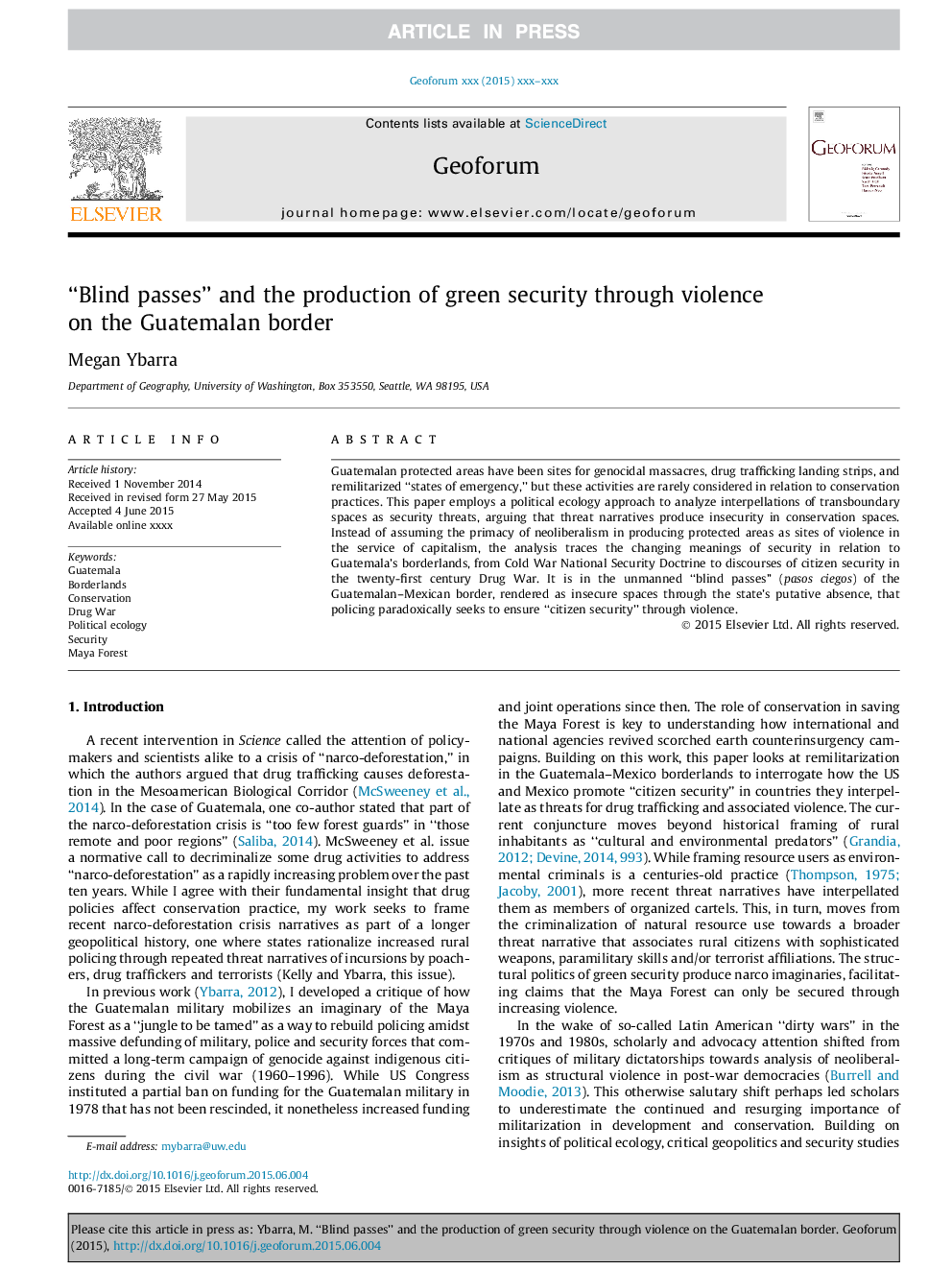| Article ID | Journal | Published Year | Pages | File Type |
|---|---|---|---|---|
| 5073640 | Geoforum | 2016 | 13 Pages |
Abstract
Guatemalan protected areas have been sites for genocidal massacres, drug trafficking landing strips, and remilitarized “states of emergency,” but these activities are rarely considered in relation to conservation practices. This paper employs a political ecology approach to analyze interpellations of transboundary spaces as security threats, arguing that threat narratives produce insecurity in conservation spaces. Instead of assuming the primacy of neoliberalism in producing protected areas as sites of violence in the service of capitalism, the analysis traces the changing meanings of security in relation to Guatemala's borderlands, from Cold War National Security Doctrine to discourses of citizen security in the twenty-first century Drug War. It is in the unmanned “blind passes” (pasos ciegos) of the Guatemalan-Mexican border, rendered as insecure spaces through the state's putative absence, that policing paradoxically seeks to ensure “citizen security” through violence.
Related Topics
Social Sciences and Humanities
Economics, Econometrics and Finance
Economics and Econometrics
Authors
Megan Ybarra,
